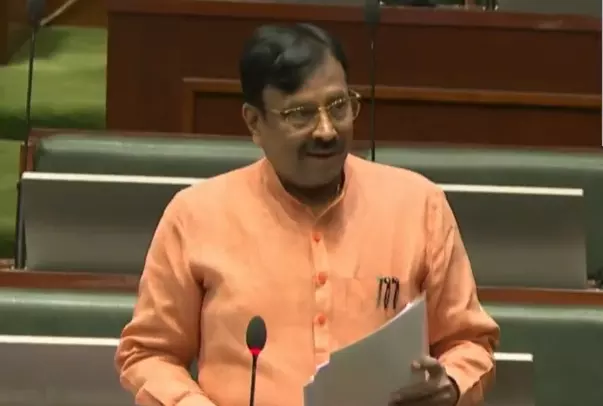English Triggers Row in Maharashtra Assembly
If there is difficulty in understanding Marathi, then the proceedings papers should be provided in Hindi. This policy of opposing Hindi and embracing English is wrong, Sudhir added.

Mumbai: Amidst the row against the imposition of Hindi in Maharashtra, the use of English language in the legislative proceedings also triggered a controversy on Thursday in the ongoing monsoon session of the State Legislature. Senior BJP leader Sudhir Mungantiwar questioned the use of English language in the documents of house proceedings saying the English words should be removed.
Raising the issue in Vidhan Sabha, Mr. Mungantiwar strongly objected to the house proceeding documents given in English. He said, “Although the proceedings of the House can be conducted in Marathi, Hindi or English as per the provisions of the Vidhan Sabha rules, I have not seen any proceedings paper in English in the House till now. Marathi has been made a classical language and those who cannot speak Marathi should have the option to use Hindi. But why have proceedings papers in English?”
If there is difficulty in understanding Marathi, then the proceedings papers should be provided in Hindi. This policy of opposing Hindi and embracing English is wrong, he added.
Speaker Rahul Narvekar informed the House that English papers were provided following the request from nine MLAs. The BJP leader requested the Speaker to reveal the names of legislators who wanted papers in English, however, Mr. Narvekar did not announce the names.
Commenting on it, Mr. Mungantiwar demanded that English be removed from the house regulations itself.
“It can be understood that there was an influence of English while drafting the Maharashtra Assembly rules. But a meeting of the rules committee should be held once and English words should be removed from the proceedings. Marathi must be learned. Suppose if someone has a lot of difficulty with Marathi, then Hindi can be used. But if they cannot understand anything but English, then take away their passports and visas and send them directly to the British Parliament,” Mr. Mungantiwar said.
